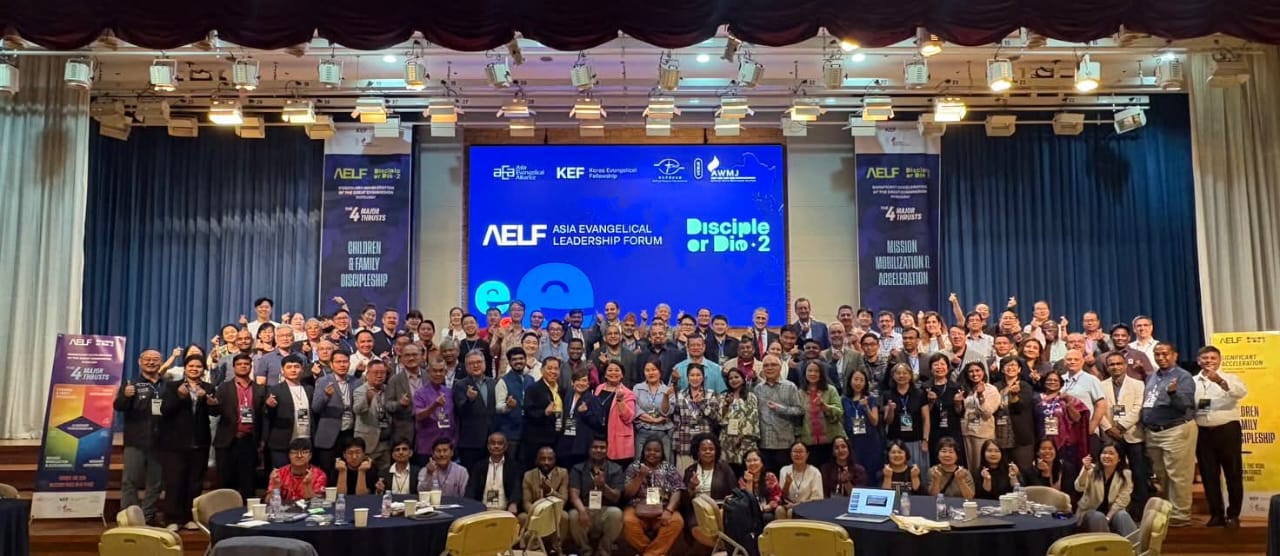Dear fellow participants in God’s mission,
Grace and peace to you in the name of the Lord Jesus Christ.
Thankfully that is not the narrative or reality that needs to guide our steps as we lead mission organizations and churches around the world. COVID-19 can provide us with a time to pause and deeply reflect upon what we’ve learned in the journey so far, where we sense God might like us to be 5-7 years from now, and what we need to understand and learn in order to grow into that calling.
What does it take to do cutting edge, excellent research?
1. Funding & Research
I had an unusual experience about a year ago. I left one meeting and, on my hurried walk to the get to the next one on time, a colleague told me I had just won the 2020 Christianity Today book-of-the-year award in the missions / global church category for Women in God’s Mission: Accepting the Invitation to Serve and Lead. The book was based on research I conducted with talented women from about thirty countries.
The news seemed surreal, and my mind had a hard time absorbing it. As soon as I got to the next meeting my boss, who had also just learned of the news, told a denominational leader we were meeting with that I had just won the award. The denominational leader asked a question that has stayed with me ever since. He said, “Mary which foundation did you partner with to pay for the research?”
I burst out laughing because at the time I did the project I was raising my own support. My salary was significantly lower than what most of my peers were earning and I had to cover the costs out of my rather small allotment of resources. However, what I did have turned out to be far more important. I had the kindness and goodwill of missions colleagues and gifted women who trusted me enough to share their stories and wisdom with me. The honor I received from Christianity Today was merely a reflection and credit to those remarkable women who participated in the project.
I’ve thought about that question so many times since then. What does it take to do cutting edge, excellent research? Does it require a wealthy patron or foundation? Sometimes their financial gifts can expand the scope of research, and their partnership can be quite significant. But are their gifts essential, to the point that we can do little unless we are the recipients of these types of grants? My experience with that recent book project, as well as research I did for my dissertation and for a prior book titled Cross-Cultural Partnerships reveal that meaningful and potent research do not need to be limited to people who are fortunate enough to receive large financial grants. But if these are not necessary, what is? And do the lessons I’ve learned have any applicability in light of the fact that people who read this blog are from so many diverse cultures and contexts? I guess that is for each person to determine, but here are some things that come to mind as I have pondered these questions.
2. Meaningful Research
What makes research meaningful and powerful? There are several reasons why research projects I have been able to do over the years have been fruitful, and these usually have little to do with outside funding. As I reflect on these different experiences, I think they are the same qualities and issues that, when they are present, make it ministry.
2.1 Let love motivate
The most basic issue behind meaningful and influential research is the motivation that is driving it. Why is that so important? I believe it is because underlying motivation tends to infuse and influence every action taken in the project, and it is frequently ‘felt’ or ‘experienced’ by those who participate in it.
Unfortunately, lots of people are doing research to build their CV’s or resumes, to get a job, or to compete in the world of higher education for promotion, tenure, etc. Since excellent research takes a great deal of perseverance, I have found that it requires a motivation deeper than self-interest. I believe love needs to be the root for something good to emerge from research. Love also ends up being the motivation for taking the following steps as well.
There are thousands of people working diligently in God’s Kingdom who would genuinely benefit from research addressing issues they are facing.
2.2 Tackle an important problem
The more experienced I get, the more I am surprised by how many years people spend researching things that no one really cares about, given that there are thousands of people working diligently in God’s Kingdom who would genuinely benefit from research addressing issues they are facing. It seems like a waste of talent and poor stewardship of time and resources to engage in research that is not developed in dialogue with ministry practitioners. Otherwise, what is the purpose? Furthermore, what is the opportunity cost from what is not happening in the Kingdom for all of those years spent doing work that hardly anyone will ever even read? Is it to get the privilege of having someone call you Dr.? If so, that seems like a profoundly shallow outcome.
But what happens when you turn your heart for research towards tangible problems that ministry leaders in global missions or churches are facing? Suddenly, deeply busy people perk up and start paying attention. That is when you will begin hearing, “You mean someone cares enough about what I am doing to want to research it so we can be more fruitful? I’m in!” It is at that place that collaboration begins to occur in a significant way, and it is far more valuable than money.
If you put yourself in other people’s shoes you start to think of research processes differently.
2.3 Develop a process with integrity
There is another critical aspect to conducting meaningful research: your reputation. How do you treat people? Are you a user or are you a blesser? Do you just care about your own success and effectiveness or do you care as much or more about the well-being of others? Can people trust you with their stories? Will you put yourself in their shoes so to speak, and care enough to see the world through their eyes? If so, that is the starting place for designing a research process that has integrity.
If you put yourself in other people’s shoes you start to think of research processes differently. For example, at that moment, you begin to not just consider the questions you want to ask but also the impact those questions will have on the people who will participate in the research. You begin to think about how much time is reasonable to ask of busy people. It also impacts the timelines you develop to collect data. Do you form those timelines based upon what is easy and convenient for you, or do you allow margin, realizing your research is not the center of everyone else’s universe? Do you realize and care that they have other tasks and responsibilities, and do you remember that it is for your privilege that they are willing to share their time, stories and insight with you and not something you are entitled to have?
Undertaking research in a variety of cultures and contexts means thinking through the implications, sensitivities, and risk people incur by participating. For example, how do the nuances of honor influence your research and how would questions and processes need to be crafted to protect people from being dishonored by their contribution? In other cultures it might be more appropriate to use appreciative inquiry, examining what is working well rather than focusing the research on what is going poorly and what isn’t working, so this would need to be sensitively considered.
Most of us have been in conversations and situations where people seemed to have had an agenda. They said they wanted to talk but they acted like they already knew the answers, or only wanted you to say what they wanted to hear. As a researcher, are you asking genuine questions and allowing people to answer in their own way, without creating leading questions or cutting off their responses? How are you ensuring their true answers are able to be heard? Or will you take their comments out of context to make points or come to conclusions that misinterpret what they meant?
2.4 Value everyone with dignity and respect
One aspect of research that has shocked me more than anything else is how much people have thanked me after they took time out of their busy schedules to participate in a research effort that I needed to accomplish. ‘Why in the world’, I’ve often thought, ‘are they thanking me when they are doing me such a huge favor?’
This kept puzzling me until I realized something very important. In life rarely does someone come to us and ask what we genuinely think about an issue that is deeply important to us—and then they actually listen. Maybe some get that experience in therapy, but they likely have to pay for it. When qualitative research is done well, with genuine open-ended questions designed to help people tell their stories and think through what is important to them, it is a deeply meaningful and respectful experience for those who participate in the process.
2.5 Translate findings for practitioners
Sadly, since so much research is done to fulfill academic requirements, like a capstone project for a Master’s Degree, a thesis for a D.Min., or a dissertation for a PhD, many people never go further to translate what they learned. To interpret it out of “academic lingo” into language and communication pieces that busy practitioners can relate to and understand.
I am concerned this is a significant reason missiological research frequently does not impact local church practice. Many missiological gatherings involve a person reading his or her paper for 20-30 minutes, there are a few moments for questions, and then on to the next paper. Most busy pastors and missions practitioners do not want to attend those types of gatherings, nor do many have time to sift through dense academic writing. Yet we researchers wonder why our work is not impacting how mission and ministry are done? It takes additional works to translate research into formats and platforms that busy people can absorb.
In this next era, let’s make excellent research a priority for our churches and ministries.
3. Research During & Post-Pandemic
In this next era, let’s make excellent research a priority for our churches and ministries. Here are a few ways to significantly move research forward in your context
3.1 Identify needs
What issues are tripping you up and hindering your ministry? What internal obstacles are you facing? For example, do you have a robust succession plan or is there an inadequate internal leader development pipeline? What is hindering people in your ministry from developing to their full potential? Are you struggling to be more effective at a certain type of ministry? Are you unclear if you are truly being effective at what you are trying to accomplish? Are there new areas of ministry God is calling you into that you have never engaged in the past? What are the biggest issues and concerns that you believe will hinder your ability to live into the next stage of your church’s or ministry’s calling? Get clear about what your most important issues and challenges are and focus your research there.
3.2 What is in your hand?
We can look at ministries that receive large grants and financial gifts and feel like we are lacking in what we need to accomplish God’s purposes. We can become so easily fixated on what we do not have that we begin to lose sight of what God has already given us. That mindset is more debilitating than almost anything else, so you need to work hard to switch your focus. As God asked Moses (Exodus 4:2), “what is in your hand?” Who could you talk to in order to learn more about these issues? Talk with your community to see if research has already been done about the issue, or a similar one. Are there books you and your colleagues could read together? If so, which ones might be most helpful?
New research usually requires you to go right to the source. For example, if you are struggling to find ways to share the gospel with a particular people, how might you be able to talk with them directly about the obstacles within the confines of a research project? Are there people you are working with who have insights in these areas, who can help move your ministry forward? If so, is it possible for them to come together and form a new task force with that focus?
Many churches and ministries have people on staff with advanced education, such as masters and doctoral degrees, that required them to undertake a research project. Tap their expertise. Many ministries enable those in their midst with a gift for research to set aside time to learn together and with others outside of the ministry. Some of these colleagues can set 10-20% of their time aside for research and others might even be able to devote 80-90% of their time to research. It is also possible to collaborate with research institutions like the one I work with at Wheaton College Billy Graham Center, seminaries in your region that have a research institute, communities like the WEA Mission Commission, Evangelical Missiological Societies, etc.
3.3 Maximize technology
A lot of quality research in global missions used to be so expensive because it often involved so much international travel. An unexpected but positive outcome of the pandemic is the accelerated use of technology. People who used to avoid using different forms of technology are now engaging them regularly. People are also becoming more and more creative about finding meaningful ways to connect. Capitalize on what we are all learning in these areas and build research strategies that utilize these new and helpful technologies to meet with people for conversations, interviews, focus groups, etc.
4. Accelerate Ministry Fruitfulness
Research, if done well, can profoundly accelerate the impact of your ministry. It can enable you to overcome obstacles, find new opportunities and become fruitful in your work much more quickly. It can help you to raise the ceiling of what your ministry can accomplish and empower your colleagues to make their best contribution for the sake of God’s kingdom. Consider making research a strategic priority as 2021 continues, during and after the pandemic, and you might be quite surprised at what even a small investment will yield in terms of ministry fruitfulness!
Pray
- For discernment with churches and missions concerning what areas of their ministry need to be investigated and what methods are best used to investigate it, as we move into the post-pandemic era.
- For wisdom to know who to include as participants in research and for favor, that they would be willing to participate at no cost so that the research can proceed and findings be published to bless a much wider sphere of ministry.
- For an openness to change in the global missions community as new evidence comes to light that suggests a need for significant shifts in missions strategy and objectives (while retaining biblical integrity).
- That we will see a growing among of research emerging that is of practical benefit, conducted by reflective practitioners, for missions (and church/local ministry) practitioners.
]]>




Stay Connected